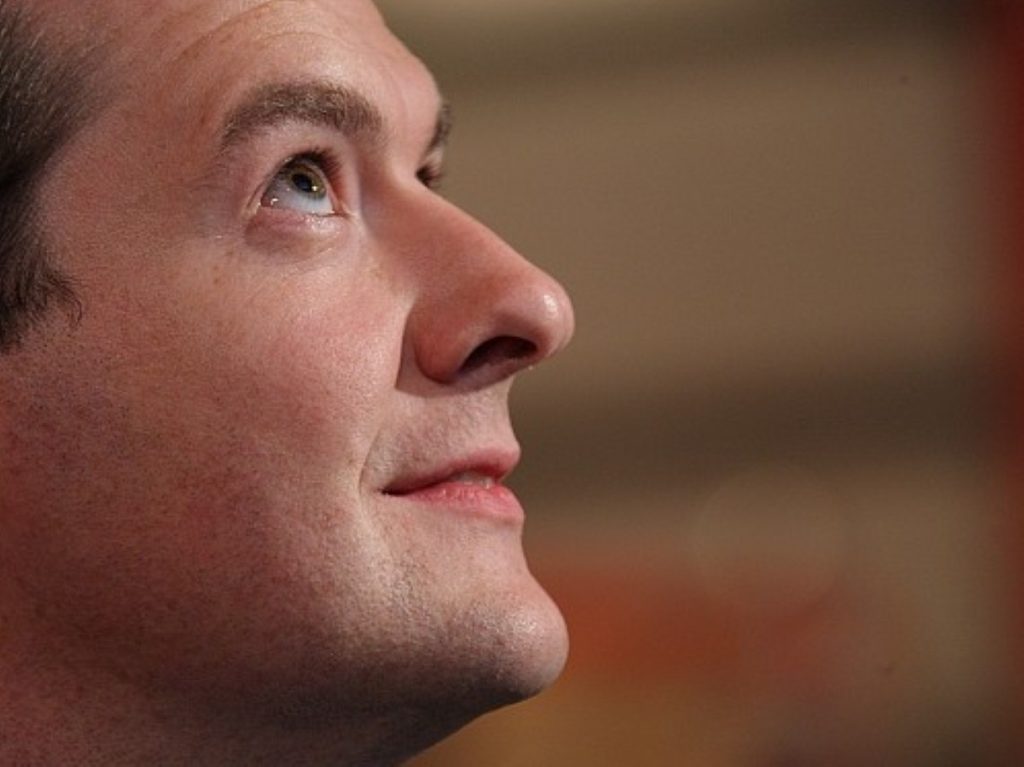Small victories: Osborne breathes sigh of relief as UK avoids triple-dip recession
George Osborne was given some much-needed breathing room today, as official figures showed the economy grew by 0.3% in the first three months of the year.
The small rise in GDP means the UK has avoided the indignity of a triple-dip recession and all the associated political and media pressure that would have brought to bear on the chancellor.
But the sluggish growth only put the UK where it was six months ago and it confirms that the economy is stagnating.
"It does look like we've been on a plateau – a plateau with a gentle upward trend," the director of the Office of the Chief Economic Adviser, Joe Grice, said.
He described the pattern of the last few quarters as "an upward trend but a shallow one and quite bumpy".
GDP was 0.4% higher in the first quarter of the year than it was in the third quarter of 2011, meaning growth has been broadly flat over the last 18 months.
GDP is now 2.5% below its peak in the first quarter of 2008, making it the longest recovery since records began.
Nick Clegg maintained a downbeat mood in his phone-in with LBC listeners.
"It is only one number," he said.
"We are not out of the woods yet."
Even though the growth is minor, it is more substantial than the market consensus before it was announced, which predicted it would be at 0.1%.
The increase was mostly due to services, which increased by 0.6% – contributing 0.47 % to the 0.3% growth.
Manufacturing and exports remain feeble however.
Osborne tweeted: "Today's figures are an encouraging sign the economy is healing. Despite a tough economic backdrop, we are making progress."
Shadow chancellor Ed Balls said: "These lacklustre figures show our economy is only just back to where it was six months ago and continue the picture of flatlining we have seen since the last spending review.
"David Cameron and George Osborne have now given us the slowest recovery for over 100 years."
GDP figures are often revised later and today's growth is within the average margin of error of 0.36%.
Some say the continued stagnation of the British economy is the result of prolonged unseasonal cold weather and the continued volatility in the eurozone, although that was given short shrift by experts today.
"Overall we have no direct evidence these figures are particularly affected by the weather or indeed any other special factors," Grice said.
Even the International Monetary Fund (IMF), which he had usually cited as a strong supporter of his austerity programme, appears to have lost faith in Osborne.
IMF chief economist Oliver Blanchard said weak private demand in the UK was the result of spending cuts and that Osborne needed to backtrack on his economic agenda.
"He is one voice. He has a well-known set of views on this that he has expressed over several years," Osborne responded.
"The IMF will do its analysis of the British economy as it does of all economies when it comes to Britain in May."
Meanwhile, trade unions are starting to ratchet up their demand for a general strike, with a small protest in central London yesterday and backing from the TUC.





-01.png)